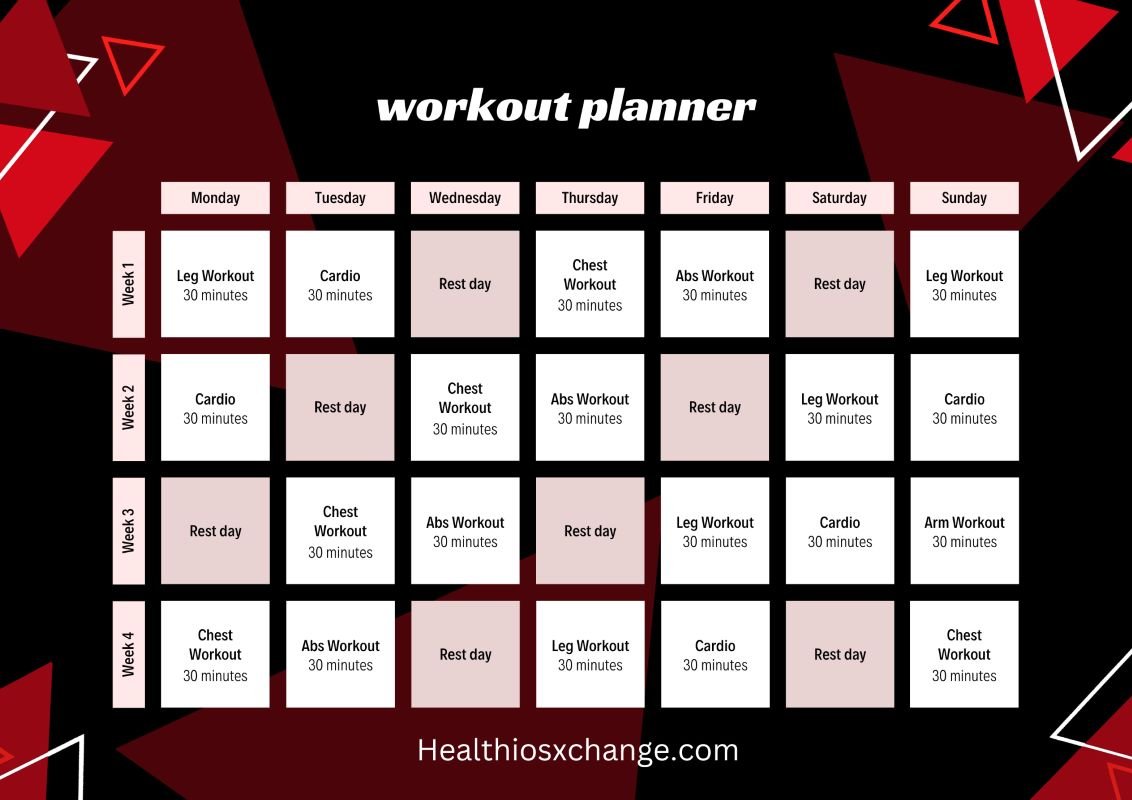The Bariatric Weight Loss Calculator helps individuals estimate their potential weight loss after undergoing bariatric surgery. By inputting specific personal details such as height, weight, age, and gender, the calculator provides an approximate range of weight loss that can be expected following the procedure.
The calculator considers the different types of bariatric surgeries available, including gastric bypass, sleeve gastrectomy, and gastric banding. Understanding the potential weight loss outcomes can be helpful for individuals considering bariatric surgery as a treatment option for obesity and related health conditions.
By using the Bariatric Weight Loss Calculator, individuals can gain insight into the potential benefits and outcomes of the procedure.

Understanding Bariatric Weight Loss Surgery
Bariatric weight loss surgery is a procedure that can help individuals achieve significant weight loss. A bariatric weight loss calculator can help understand this surgery’s potential outcomes. It provides personalized information about weight loss goals and lets patients make informed decisions about their journey.
Understanding Bariatric Weight Loss Surgery Bariatric weight loss surgery is a life-changing procedure that can help obese individuals achieve sustainable weight loss. This surgical intervention is not a quick fix but rather a tool that can lead to significant and long-lasting weight loss when combined with healthy lifestyle changes.
What Is Bariatric Weight Loss Surgery?
Bariatric weight loss surgery, also known as weight loss or obesity surgery, refers to a variety of surgical procedures designed to help individuals with severe obesity. These procedures aim to change the anatomy of the digestive system, promoting weight loss by reducing the amount of food the individual can eat or limiting nutrient absorption. Bariatric surgery typically involves altering the stomach size or rerouting the digestive tract, resulting in reduced food intake and changes in the hormonal signals that control appetite and metabolism.
Types Of Bariatric Weight Loss Surgery
There are several different types of bariatric weight loss surgery, each with unique benefits and considerations. The most commonly performed procedures include
1. Gastric Bypass: In this procedure, a small pouch is created at the top of the stomach, which is then connected to the small intestine, avoiding the first segment of the small intestine and a piece of the stomach. This results in reduced food intake and decreased absorption of calories.
2. Sleeve Gastrectomy: This procedure involves the removal of a large portion of the stomach, leaving behind a small, banana-shaped tube or sleeve. With a reduced stomach size, the individual feels complete with smaller food portions, leading to weight loss.
3. Adjustable Gastric Banding: This procedure involves placing a silicone band around the upper part of the stomach, creating a small pouch. The band can be adjusted to control the bag’s size and the food digestion rate.
Who Is Eligible For Bariatric Weight Loss Surgery?
Bariatric weight loss surgery is typically recommended for individuals with a body mass index (BMI) of 40 or higher or those with a BMI of 35 or higher with obesity-related health conditions such as diabetes, high blood pressure, or sleep apnea. It is important to note that bariatric weight loss surgery is not suitable for everyone. Candidates must undergo a thorough evaluation to determine whether they are physically and mentally prepared for the surgery. Factors such as overall health, previous weight loss efforts, and commitment to lifestyle changes are considered. Before undergoing bariatric weight loss surgery, individuals should consult with an experienced bariatric surgeon and a multidisciplinary team that may include dietitians, psychologists, and exercise specialists. This comprehensive approach ensures that patients are well-prepared for the procedure and have the support they need to achieve long-term success. Overall, bariatric weight loss surgery offers a new lease on life for individuals struggling with obesity. While it is not a one-size-fits-all solution, it can provide the necessary tools and support to help individuals achieve significant weight loss and improve their overall health and quality of life.
The Importance Of A Bariatric Weight Loss Calculator
Discover the significance of using a bariatric weight loss calculator for effective weight management. This tool assists individuals in accurately tracking their progress and making informed decisions about their bariatric journey.
If you are considering bariatric weight loss surgery, it is crucial to have accurate information about your potential weight loss journey. This is where a bariatric weight loss calculator comes into play. It is an invaluable tool that can clearly understand your progress, help set realistic goals, and ultimately pave the way for a successful weight loss journey.
Why Use A Bariatric Weight Loss Calculator?
Using a bariatric weight loss calculator has numerous benefits, making it an essential tool for anyone considering or undergoing bariatric surgery. Here are some reasons why it is worth utilizing:
- Accurate estimation: A bariatric weight loss calculator considers various factors, such as your current weight, height, gender, and age, to provide you with an accurate estimation of your potential weight loss after surgery. This information can help you set realistic goals and stay motivated.
- Customization: Each individual’s weight loss journey is unique, and a bariatric weight loss calculator understands that. You receive a tailored estimation specific to your circumstances by inputting your personal details. This personalized approach allows for a more precise understanding of your progress.
- Goal setting: Setting achievable goals is crucial for any weight loss journey. A bariatric weight loss calculator enables you to set realistic milestones based on your estimated weight loss. This keeps you motivated, helps you stay on track, and monitors your progress effectively.
How Does A Bariatric Weight Loss Calculator Work?
A bariatric weight loss calculator utilizes a mathematical formula to estimate the weight you will likely lose after undergoing bariatric surgery. The calculation considers individual factors, such as your body mass index (BMI) and the type of procedure you are considering. By entering these details into the calculator, you can receive an approximate understanding of the potential weight loss you can expect.
Remember that a bariatric weight loss calculator provides an estimation, not a guarantee. Your weight loss may vary based on factors, including your commitment to a healthy lifestyle post-surgery.
Benefits Of Using A Bariatric Weight Loss Calculator
Using a bariatric weight loss calculator offers several benefits that can significantly contribute to the overall success of your weight loss journey. Some notable advantages include:
- Realistic expectations: A bariatric weight loss calculator helps you maintain realistic expectations by providing an estimated range of weight loss you can achieve. This helps prevent disappointment and keeps you motivated as you progress.
- Motivation: Seeing your estimated weight loss can be incredibly motivating and help keep you focused on your goals. A bariatric weight loss calculator is a visual reminder of the positive changes you could experience after surgery, encouraging you to stay dedicated to your weight loss journey.
- Informed decision-making: Calculating your potential weight loss beforehand allows you to make more informed decisions about the type of bariatric surgery that best suits your needs and preferences. This information can empower you to make choices that align with your goals and well-being.
By utilizing a bariatric weight loss calculator, you can confidently embark on your weight loss journey, armed with realistic expectations, informed decisions, and the motivation to succeed.

Factors Impacting Bariatric Weight Loss
Factors impacting bariatric weight loss include individual metabolism, adherence to dietary guidelines, exercise habits, emotional well-being, and support from healthcare professionals. These factors contribute to the overall success of weight loss after bariatric surgery as calculated by the bariatric weight loss calculator.
Factors Impacting Bariatric Weight Loss When it comes to bariatric weight loss, several factors play a crucial role in determining the procedure’s success. These factors include diet, nutrition, exercise, physical activity, and psychological and emotional support. By understanding how these aspects contribute to weight loss after bariatric surgery, individuals can optimize their results and achieve long-term success on their weight loss journey.
Diet And Nutrition
Proper diet and nutrition are essential for a successful bariatric weight loss journey. Following surgery, the stomach’s reduced size requires individuals to change their eating habits significantly. Consuming nutrient-dense foods that provide essential vitamins, minerals, and protein is crucial while avoiding empty calories and high sugar content. A well-balanced diet comprising lean proteins, whole grains, fruits, and vegetables is recommended. Additionally, taking vitamin and mineral supplements as a healthcare professional prescribes can help maintain nutritional balance.
Exercise And Physical Activity
Regular exercise and physical activity are vital for maintaining overall health and maximizing weight loss post-bariatric surgery. Engaging in aerobic exercises, such as walking, swimming, or cycling, and strength training exercises can help burn calories, build lean muscle, and boost metabolism. Starting gradually and gradually increasing the intensity and duration of exercise can help minimize the risk of injury. Consulting with a healthcare professional or a certified fitness trainer is recommended to develop an exercise regimen tailored to individual needs and capabilities.
Psychological And Emotional Support
The psychological and emotional aspects of bariatric weight loss are often overlooked but are as important as the physical ones. Surgery can significantly change body image, self-esteem, and overall emotional well-being. Seeking psychological and emotional support from professionals, such as therapists or support groups, can provide the necessary tools to cope with these changes effectively. Building a support system of friends, family, and fellow bariatric surgery patients can also offer encouragement, understanding, and motivation throughout the weight loss journey. In summary, factors such as diet and nutrition, exercise and physical activity, and psychological and emotional support contribute significantly to bariatric weight loss success. By prioritizing these aspects, individuals can optimize their results, achieve their weight loss goals, and maintain a healthy lifestyle long-term. Remember, making lifestyle changes and seeking support is ongoing throughout the weight loss journey.
Why You Choose Bariatric Weight Loss Body Transformation
Embarking on a journey towards a healthier lifestyle is a significant decision, and when it comes to weight loss transformations, Bariatric Weight Loss stands out as a compelling choice. This approach, involving surgical procedures designed to promote weight reduction, has gained popularity for several reasons, each contributing to its effectiveness and long-term success.
1. Scientific Basis: Bariatric surgeries, such as gastric bypass and sleeve gastrectomy, are rooted in sound scientific principles. These procedures modify the anatomy of the digestive system, leading to reduced food intake and nutrient absorption. This physiological alteration helps individuals achieve sustainable weight loss by addressing the quantity and quality of caloric information.
2. Medical Efficacy: Numerous studies attest to the medical efficacy of Bariatric Weight Loss in treating obesity and related health issues. Beyond shedding excess pounds, these surgeries often result in significant improvements or remission of comorbid conditions like type 2 diabetes, hypertension, and sleep apnea. This holistic health approach sets Bariatric Weight Loss apart as a comprehensive solution to obesity-related complications.
3. Lifestyle Transformation: Bariatric procedures are not merely about reducing weight; they facilitate a profound lifestyle transformation. Patients often experience a shift in dietary habits, with an increased focus on nutrient-dense foods. Additionally, regular physical activity becomes more feasible and enjoyable, fostering practices that contribute to long-term weight maintenance.
4. Psychological Well-being: Weight loss journeys are inherently intertwined with psychological well-being. Bariatric surgeries have been shown to positively impact mental health, with many patients reporting enhanced self-esteem, reduced depression, and an overall improvement in quality of life. This psychological upliftment is crucial for sustaining long-term weight management.
Table: Comparative Analysis of Bariatric Procedures
| Procedure | Mechanism | Expected Weight Loss | Common Comorbidities Addressed |
|---|---|---|---|
| Gastric Bypass | Restricts Food Intake | 60-80% of Excess Weight | Type 2 Diabetes, Hypertension |
| Sleeve Gastrectomy | Reduces Stomach Size | 50-70% of Excess Weight | Sleep Apnea, High Cholesterol |
| Adjustable Gastric Band | Limits Stomach Capacity | 40-50% of Excess Weight | Gastroesophageal Reflux Disease |
5. Long-term Success: Bariatric Weight Loss is renowned for its potential to yield enduring results. Unlike many fad diets or non-surgical interventions, these procedures offer a higher likelihood of sustained weight loss over the years. The combination of physical changes and the adoption of a healthier lifestyle contributes to the longevity of success.
6. Team Approach and Support: Bariatric programs often involve a multidisciplinary team comprising surgeons, dietitians, psychologists, and fitness experts. This comprehensive approach ensures that patients receive ongoing support in navigating the challenges associated with weight loss and lifestyle modification. Regular follow-ups and counselling sessions contribute significantly to sustained success.
In choosing Bariatric Weight Loss for a body transformation journey, one opts for a scientifically grounded, medically practical, and holistic approach. The combination of physiological changes, lifestyle transformation, and psychological well-being makes this method a compelling choice for those seeking to shed excess weight and achieve sustainable, long-term health and vitality.

Frequently Asked Questions Of Bariatric Weight Loss Calculator
How Does A Bariatric Weight Loss Calculator Work?
A bariatric weight loss calculator uses various factors like height, weight, age, and activity level to estimate how much you can lose after bariatric surgery. It helps set realistic weight loss expectations and guides you towards making informed decisions regarding your weight loss journey.
Can A Bariatric Weight Loss Calculator Accurately Predict Weight Loss?
While a bariatric weight loss calculator provides an estimate, it should not be considered an exact prediction. Individual results may vary based on metabolism, adherence to post-operative instructions, and lifestyle changes. Consult with a bariatric surgeon for personalized advice and guidance.
Is A Bariatric Weight Loss Calculator Useful For Pre-surgery Planning?
Yes, a bariatric weight loss calculator can be helpful for pre-surgery planning. It can give you an idea of the potential weight loss you may achieve after surgery, which can be beneficial for setting goals and expectations. However, it is essential to remember that the calculator’s results are not guaranteed and should be discussed with your bariatric surgeon.
Conclusion
In conclusion, bariatric weight loss represents a multifaceted journey towards improved health, well-being, and overall life satisfaction. As our understanding of obesity and its complexities grows, so too does the potential for bariatric surgery to positively impact the lives of individuals seeking a transformative solution to their weight-related challenges. It is a testament to the progress of medical science that such interventions exist, offering hope and a second chance for those on the path to reclaiming their health and happiness.
The social implications of bariatric weight loss are profound as well. Patients frequently find themselves able to engage in activities and social interactions previously hindered by their weight. This renewed ability to participate in life’s pleasures can lead to enhanced relationships, improved social connections, and a more active and fulfilling lifestyle.
However, it is crucial to acknowledge that the decision to undergo bariatric surgery is a deeply personal one, and success requires a commitment to comprehensive lifestyle changes post-operatively. Patients must adopt healthier dietary habits, incorporate regular physical activity, and embrace a long-term mindset focused on sustainable well-being.
A bariatric weight loss calculator can be valuable in your weight loss journey. It allows you to track your progress, set realistic goals, and make informed decisions about your diet and exercise routine. Understanding your body’s unique needs and adjusting accordingly can optimize your weight loss efforts and achieve long-term success.
So, why wait? Start using a bariatric weight loss calculator today, take control of your health, and stay with Healthiosxchange.

I am Jahirul Islam. I am a physiotherapist and I have a lot of experience in this field. I want to share my experience with you. You will be by my side. Good luck for everyone..

